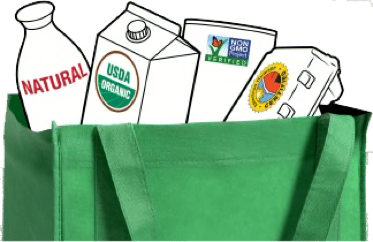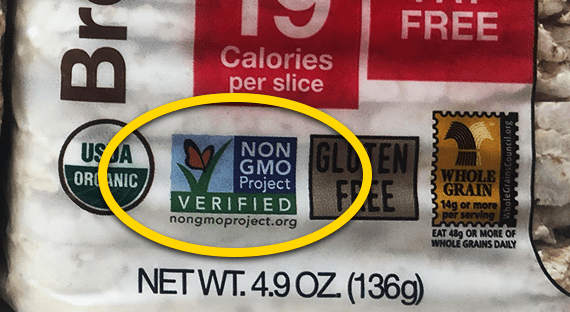Products that are Non-GMO Project Verified must not be made with ingredients derived from crops grown with genetically engineered seed or with genetically engineered animals (including clones). Currently, only a limited number of food crops have genetically engineered varieties, but these foods make up a large part of the agricultural acres in the U.S.: canola, corn, papaya, soy, sugar beets, and summer squash. (Genetically engineered salmon is on the market in Canada. The Food and Drug Administration has approved it, but it is not currently available in the U.S.) The seal's standards require that when these crops are used in food products, every lot has to be tested for genetically modified (or engineered) organisms, or GMOs. To prevent contamination of non-GMO ingredients with GMOs, the standards require procedures for cleaning facilities and keeping GMO and non-GMO ingredients separate. A Non-GMO Project Verified seal on animal products not only means that the animals themselves weren't genetically engineered but also that the animal feed was tested for major GMO crops (such as corn and soy) and contained less than 5 percent GMO material.
Clear and enforceable rules are behind this seal. Independent certification companies approved by the Non-GMO Project assess compliance with the standards. The process includes on-site inspections, paperwork review, and regular testing of high-risk ingredients, such as corn and soybeans, to verify that the level of GMOs is below 0.9 percent for ingredients in human food and below 5 percent for ingredients in animal feed.

Consumer Reports takes a detailed look at the requirements, definitions, standards, and verification procedures behind food labeling seals and claims, and distills this information into CR ratings. Our goal is to inform and empower consumers so they can act to create demand for a healthier, safer food system.


























